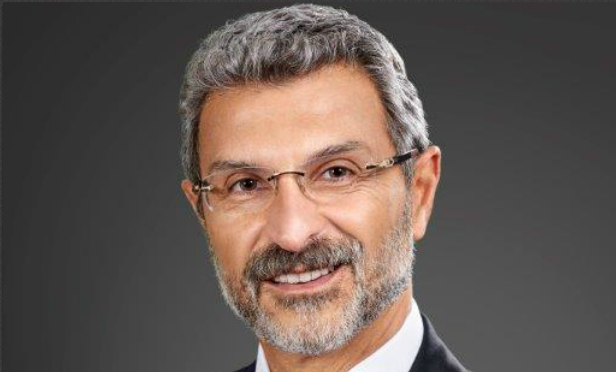
Technology is changing our world and our economy. Major disruptors like Uber and Airbnb are already fueling changes in development, but more change is coming. The driverless car and new public transit models will promise even more changes—and developers need to adjust future developments to accommodate these new needs. But, that is easier said than done. Government regulation is slow to change, and it may even imped adoption of new technologies. Emile Haddad, the new chairman of the USC Lusk Center and CEO of development firm FivePoints, has named the government's lack of response to changing technologies as one of the major issues that we face today, but one that almost no one is discussing. We sat down with Haddad to discuss the need for changing regulations and where that change should come from.
GlobeSt.com: Why do you think regulatory issues aren't being discussed, and why did you feel it was important to shine a light on them?
Emile Haddad: I believe that the disruption that we are seeing today is happening so quickly that it is going to require regulation and government to be moving at the same speed if we are going to see implementation of new technology. I do not believe that the codes and regulation and politics is going to move as fast, and my fear is that we are going to find ourselves seeing this new technology being proven out in places like China and Dubai before we see it here. I wanted to take the spotlight from Millennials and Generation Z and out the spotlight on the potential obstacles that might prevent us from getting to that place, which is regulation. Today, I don't see the codes changing on parking, yet we are talking about a point in time in the coming decades where we might not need parking or need as much parking. We are still using obsolete traffic models that were developed 25 years ago, while at the same time, we are talking about driverless cars. I really want to make sure that we have awareness and we are thinking ahead about what to do to make sure that we are going to end up with two hands to clap.
GlobeSt.com: There are some developers that are making modifications to new projects. For example, some developers are raising the ceiling heights on buildings so that they can be converted into alternate uses in the future. Is that a solution to mitigating the issues of obsolescence?
Haddad: I think that there is extreme inefficiency and it is unfortunate that developers are building a brand new structure that is meant for a different use just because you can't not build the correct structure that is meant to serve new technology. If we are saying, let's build a parking garage that will cost tens of millions of dollars knowing that we are building a structure that may be obsolete in 10 years, that is a huge waste of money. If the answer is to raise the ceiling heights so that in 10 years we can go back and spend more money to convert the space into apartments, there lies the problem. That is just an interim structure. This might be the only thing that developers can do, but it is the wrong answer.
GlobeSt.com: Is there a movement within the development community to push for regulatory change?
Haddad: I am not aware of any, and I don't think that it should be the development industry that does it, because it is going to be perceived as self-serving. I also don't think that the development community has enough data that they can provide to the policy markers to make the right policy. So, we are going back to speculation, extrapolation and lobbying—and that is again the wrong answer. That is why I am so excited about my new position at USC, and I hope that USC can serve as the provider of research and science to inform both the public and private sector as to what the needs of the future are going to look like. We need an institution like USC to play a crucial role of providing research so that we can end up with the right policy and the right approach.
GlobeSt.com: Do you think that the change will come from local governments?
Haddad: Today, a lot of the permitting is happening at the Federal level, state level and at the local level. I believe that implementation of new ideas is always better from the bottom up rather than the top down. Local governments are more nimble than the federal government, and if they come up with create ideas that get adopted by other cities, that will ultimately bubble up to the federal government. Where I haven't seen a lot of great models is when the Federal government comes up with something and then presses it down. Each city then reacts to that federal mandate differently.
GlobeSt.com: Is this an issue specifically in Los Angeles, which has an imbedded car culture, or are you seeing this problem in other cities as well?
Haddad: It is a global issue; it is a national issue; and it is a local issue. We are picking on the driverless car as an example, there are other technologies that fall into this category. Airbnb is an example and Uber is another. The topic is: Is government moving in tandem with new economy that is getting to a place of disruption? We have a whole generation that is embracing that new economy, and we need the government to acknowledge that. There are a lot of industries and companies that fall in this same category, and they are going to need the government to move in tandem with them. We need to look at it as a global issue.

Technology is changing our world and our economy. Major disruptors like Uber and Airbnb are already fueling changes in development, but more change is coming. The driverless car and new public transit models will promise even more changes—and developers need to adjust future developments to accommodate these new needs. But, that is easier said than done. Government regulation is slow to change, and it may even imped adoption of new technologies. Emile Haddad, the new chairman of the USC Lusk Center and CEO of development firm FivePoints, has named the government's lack of response to changing technologies as one of the major issues that we face today, but one that almost no one is discussing. We sat down with Haddad to discuss the need for changing regulations and where that change should come from.
GlobeSt.com: Why do you think regulatory issues aren't being discussed, and why did you feel it was important to shine a light on them?
Emile Haddad: I believe that the disruption that we are seeing today is happening so quickly that it is going to require regulation and government to be moving at the same speed if we are going to see implementation of new technology. I do not believe that the codes and regulation and politics is going to move as fast, and my fear is that we are going to find ourselves seeing this new technology being proven out in places like China and Dubai before we see it here. I wanted to take the spotlight from Millennials and Generation Z and out the spotlight on the potential obstacles that might prevent us from getting to that place, which is regulation. Today, I don't see the codes changing on parking, yet we are talking about a point in time in the coming decades where we might not need parking or need as much parking. We are still using obsolete traffic models that were developed 25 years ago, while at the same time, we are talking about driverless cars. I really want to make sure that we have awareness and we are thinking ahead about what to do to make sure that we are going to end up with two hands to clap.
GlobeSt.com: There are some developers that are making modifications to new projects. For example, some developers are raising the ceiling heights on buildings so that they can be converted into alternate uses in the future. Is that a solution to mitigating the issues of obsolescence?
Haddad: I think that there is extreme inefficiency and it is unfortunate that developers are building a brand new structure that is meant for a different use just because you can't not build the correct structure that is meant to serve new technology. If we are saying, let's build a parking garage that will cost tens of millions of dollars knowing that we are building a structure that may be obsolete in 10 years, that is a huge waste of money. If the answer is to raise the ceiling heights so that in 10 years we can go back and spend more money to convert the space into apartments, there lies the problem. That is just an interim structure. This might be the only thing that developers can do, but it is the wrong answer.
GlobeSt.com: Is there a movement within the development community to push for regulatory change?
Haddad: I am not aware of any, and I don't think that it should be the development industry that does it, because it is going to be perceived as self-serving. I also don't think that the development community has enough data that they can provide to the policy markers to make the right policy. So, we are going back to speculation, extrapolation and lobbying—and that is again the wrong answer. That is why I am so excited about my new position at USC, and I hope that USC can serve as the provider of research and science to inform both the public and private sector as to what the needs of the future are going to look like. We need an institution like USC to play a crucial role of providing research so that we can end up with the right policy and the right approach.
GlobeSt.com: Do you think that the change will come from local governments?
Haddad: Today, a lot of the permitting is happening at the Federal level, state level and at the local level. I believe that implementation of new ideas is always better from the bottom up rather than the top down. Local governments are more nimble than the federal government, and if they come up with create ideas that get adopted by other cities, that will ultimately bubble up to the federal government. Where I haven't seen a lot of great models is when the Federal government comes up with something and then presses it down. Each city then reacts to that federal mandate differently.
GlobeSt.com: Is this an issue specifically in Los Angeles, which has an imbedded car culture, or are you seeing this problem in other cities as well?
Haddad: It is a global issue; it is a national issue; and it is a local issue. We are picking on the driverless car as an example, there are other technologies that fall into this category. Airbnb is an example and Uber is another. The topic is: Is government moving in tandem with new economy that is getting to a place of disruption? We have a whole generation that is embracing that new economy, and we need the government to acknowledge that. There are a lot of industries and companies that fall in this same category, and they are going to need the government to move in tandem with them. We need to look at it as a global issue.
Want to continue reading?
Become a Free ALM Digital Reader.
Once you are an ALM Digital Member, you’ll receive:
- Breaking commercial real estate news and analysis, on-site and via our newsletters and custom alerts
- Educational webcasts, white papers, and ebooks from industry thought leaders
- Critical coverage of the property casualty insurance and financial advisory markets on our other ALM sites, PropertyCasualty360 and ThinkAdvisor
Already have an account? Sign In Now
*May exclude premium content© 2025 ALM Global, LLC, All Rights Reserved. Request academic re-use from www.copyright.com. All other uses, submit a request to [email protected]. For more information visit Asset & Logo Licensing.








